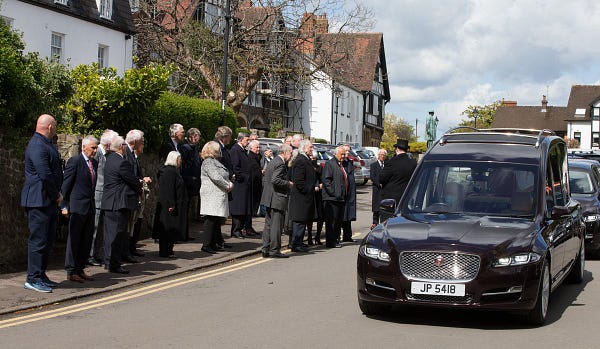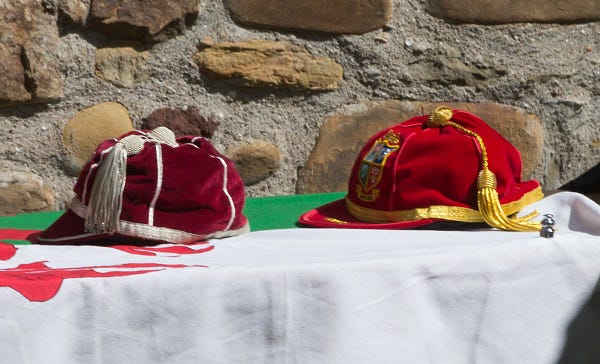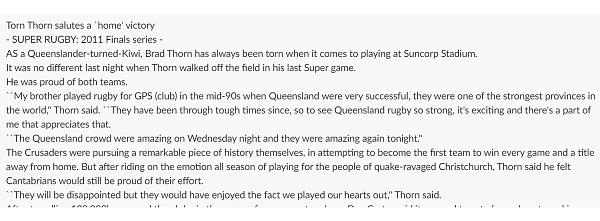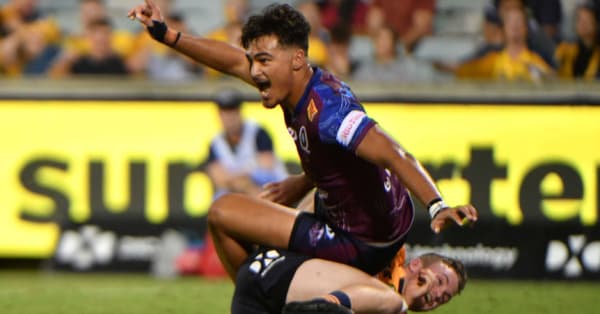NOT GOING THERE AGAIN


We have been here before.
Was it Connacht, or Newcastle in the Challenge Cup? I forget entirely but I do remember the rush of apathy from some section to what was perceived as an under-strength Tigers selection.
“Why are the big names missing? Why are we treating the competition with disrespect? Why pick all the kids for this one?”
And yet, look what happened? Connacht put to the sword with an impressive panache, while nothing but a powerful Tigers wall of defence was offered. Newcastle were similarly dispatched.
This selection has a similar vibe but the task is far steeper against a team who Leicester have struggled with, over recent seasons. Tigers’ only win at the AJB in the last five matches was the last game of the 2017/18 season under Matt O’Connor.
I remember hearing of MOC having a right good go at Bleddyn after the game. Bledd had suggested not unreasonably in midweek that after Leicester finished 6th, there needed to be a full-scale summer review. MOC took that to mean he should be sacked (Bled didnt mean to say it - I asked him.)
It ended up being MOC’s penultimate game in charge, so who was right? Bled or MOC?
Is this a much weaker Leicester team than last week v Ulster? I’m not sure it is.
Genge (I think per the RFU agreement) is out and Wiese doesn’t start, though the South African is on the bench. But Clare and Heyes deserve to start after last week and Wells deserves a week off more than most, while I’m keen to see more of Henderson.
As for the backs, Steward is on the bench, but Kelly is restored and McPhillips’ recent consistency suggests he will slot in easily enough at 10.
Now, don’t get me wrong. Sale on home soil are still favourites, having lost at the AJ Bell Stadium just twice to Wasps and Bath this season. They are largely at full strength and still adapting to life under Alex Sanderson, who appears to adapting to life without huge ball carriers in midfield than his predecessor. I’m intrigued by their options there too.
Steve Diamond signed Sam Hill and Manu Tuilagi in relatively shortly order - Manu is not expected back for another couple of weeks. (NB Thanks Charles Richardson for putting me right.) But like Leicester, a young England U20 midfield is waiting in the wings - Quirke (who played with JVP for the scrum-half shirt) at 9, Kieran Wilkinson on bench for Premiership debut at 10, Connor Doherty at 12.
Let’s see how this goes tonight. Leicester have been stuffed there in the recent past and if this is the break the players need before Montpellier in a fortnight, so be it.
IS MELVILLE REALLY THE RIGHT MAN?
Listeners to the Times’ podcast The Ruck a couple of weeks ago will have noticed caustic remarks about the Premiership’s departing chief executive Darren Childs, comparing his tenure to the 1950s movie The Man Who Never Was.
It’s based on Operation Mincemeat in 1943, where the intelligence services slip a dead body into the Mediterranean Sea, dressed as a senior naval officer so that the Nazis will recover him as well as fake plans to divert the Nazis away from the Allied invasion of Sicily.
It worked, too and it’s all true, if you read Ben Macintyre’s excellent book.
Childs is leaving, but there is a potential replacement in place. You’ll know his name too, Nigel Melville.
Once youthful England captain at scrum-half, then early retirement due to injury. Once Gloucester Director of Rugby with Dean Ryan as Head Coach, followed by his first administration job as CEO of USA Rugby. He returned to the UK, to replace Rob Andrew and then became interim Chief Executive of the RFU until Bill Sweeney’s appointment before taking up his current post as described on LinkedIn, as Executive Chairman of the PRL Investor Board.
Even if Melville is only the latest RFU top brass to go to Regal House following Ian Ritchie, it would be intriguing to ask him his views on promotion and relegation given that previous role. Sadly his role appears not to be that of a commissioner - to take into account the views of the owners, but not be ruled by them - so we cannot expect him to politically walk on water.
More seriously, Melville has come back into the English game without any visible sense of his time in the United States being questioned. That is surprising given his mixed record and the fallout from when he departed, following a decade at USA Rugby’s HQ in Colorado.
Certainly, Melville was bullish about his record when he left in 2016:
Nigel recognises the hunger for sport in the US and the potential commercial opportunities for rugby in the American market. In 2014, he was responsible for organising an international rugby union match between the USA Eagles and the New Zealand All Blacks at Soldier Field, a stadium better known for housing NFL team the Chicago Bears. “62,000 people came to watch,” Nigel recalls. Enough to make the sports market pay attention.
“Making money from the game in the US is very limited at the moment. It’s mostly amateur, the pro game is just starting,” Nigel explains. “But the bottom line is that it’s growing… it won’t go backwards now, it’ll get bigger and bigger.”
It’s never an easy job promoting the game in new markets and there were successes on the Melville record, most notably in the emergence of the US Sevens teams. But in spite of a decade at the job, the two signature achievements absolutely crashed and burned:
A professional club league in America - now that Major League Rugby is establishing itself, it’s easy to forget that MLR is the second attempt at a league structure. The first was something called PRO Rugby, promoted by an investor called Doug Schoninger, which started as a five team tournament in 2016.
Rugby International Marketing - a separate commercial entity established by USA Rugby with investment from others, including the RFU and Harlequins. It was intended to provide streaming services and content for rugby fans in the United States as well as stage games.
The fallout from these two deals is still being felt in the United States and because of it, Melville’s reputation there is decidedly mixed. Stepping away in 2016 may have been the smartest thing he did.
A year later, USA Rugby faced growing financial pressure thanks to Rugby International Marketing. Its product, the Rugby Channel collapsed with a lack of subscribers (11,000 was as good as it got). Losing over $4 million up to the end of 2017 left USA Rugby up the swanee and it only emerged from Chapter 11 bankruptcy in August last year.
One major contribution was staging a Wales-South Africa international in Washington DC, with a 27,000 attendance needed to break even. Just 21,357 fans showed up.
These mounting problems led to the resignation of four members of the USA Rugby board, including chairman Will Chang and Melville’s replacement as chief executive Dan Payne. World Rugby had to bail out USA Rugby to the tune of several million pounds. It still made a loss. In February 2019, RIM was effectively shut down.
I can assure you Melville draws a decidedly mixed audience Stateside. No doubt that he will be a better front man that Darren Childs ever could be, but we still need to understand more about what happened in his previous role, if Melville assumes greater control at Premiership Rugby.
LIONS LEFT BEHIND
Do you think this is what won AWJ the Lions captaincy?
It would earn me a trip to A & E.







AND GOOD LUCK BRAD
Brad Thorn leads Queensland Reds into tomorrow’s Super Rugby AU Final.
And Leicester knows what a classy guy he is…




Must dash. Longest drive of the season by far ahead, but speak to you tonight.
Quick reminder, if you want online radio comms with the game, go to the BBC Sport website and app for that.
Have a great weekend…
Chris




Good read again Chris. Thanks. You're spot on about Brad Thorn. He was an absolute delight in his year with us. Terrific on the pitch and a charming pleasure to talk to at the ground or just in the street. Proper class.
Interesting read again, thanks Chris